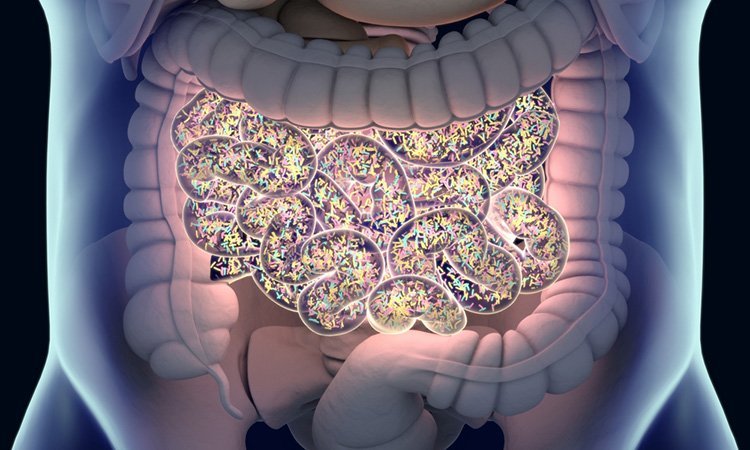Microbiome may influence severity of COVID-19, researchers say
Posted: 12 January 2021 | Victoria Rees (Drug Target Review) | No comments yet
A study has revealed that the microbiome could impact COVID-19 severity and may be implicated in persisting inflammatory symptoms.


A new study has revealed that the microbiome could influence the severity of COVID-19 as well as the magnitude of the immune system response to the infection. Imbalances in the make-up of the microbiome may also be implicated in persisting inflammatory symptoms, dubbed ‘long COVID’, the findings, from The Chinese University of Hong Kong, suggest.
As the gut is the largest immunological organ in the body and its resident microbes are known to influence immune responses, the researchers investigated if the gut microbiome might also affect the immune system response to COVID-19 infection.
They obtained blood and stool samples and medical records from 100 hospital inpatients with laboratory-confirmed COVID-19 infection between February and May 2020 and from 78 people without COVID-19 who were taking part in a microbiome study before the pandemic.
To characterise the gut microbiome, 41 of the COVID patients provided multiple stool samples while in hospital, 27 of whom provided serial stool samples up to 30 days after clearance of SARS-CoV-2, the virus responsible for COVID-19.
Analysis of all 274 stool samples showed that the make-up of the gut microbiome differed significantly between patients with and without COVID-19, irrespective of whether they had been treated with drugs, including antibiotics.
The team found that COVID-19 patients had higher numbers of Ruminococcus gnavus, Ruminococcus torques and Bacteroides dorei species than people without the infection. They also had far fewer of the species that can influence immune system response, such as Bifidobacterium adolescentis, Faecalibacterium prausnitzii and Eubacterium rectale.
Lower numbers of F. prausnitzii and Bifidobacterium bifidum were particularly associated with infection severity after taking account of antibiotic use and patient age, the researchers say. They found that the numbers of these bacteria remained low in the samples collected up to 30 days after infected patients had cleared the virus from their bodies.
Analysis of the blood samples showed that the microbial imbalance found in the COVID-19 patients was also associated with raised levels of inflammatory cytokines and blood markers of tissue damage, such as C-reactive protein and certain enzymes. The scientists say that this suggests the gut microbiome might influence the immune system response to COVID-19 infection and potentially affect disease severity and outcome.
“In light of reports that a subset of recovered patients with COVID-19 experience persistent symptoms, such as fatigue, dyspnoea [breathlessness] and joint pains, some over 80 days after initial onset of symptoms, we posit that the dysbiotic gut microbiome could contribute to immune-related health problems post-COVID-19,” they write. “Bolstering of beneficial gut species depleted in COVID-19 could serve as a novel avenue to mitigate severe disease, underscoring the importance of managing patients’ gut microbiota during and after COVID-19.”
The research was published in Gut.
Related topics
Disease research, Metabolomics, Microbiome, Research & Development
Related conditions
Covid-19
Related organisations
The Chinese University of Hong Kong



